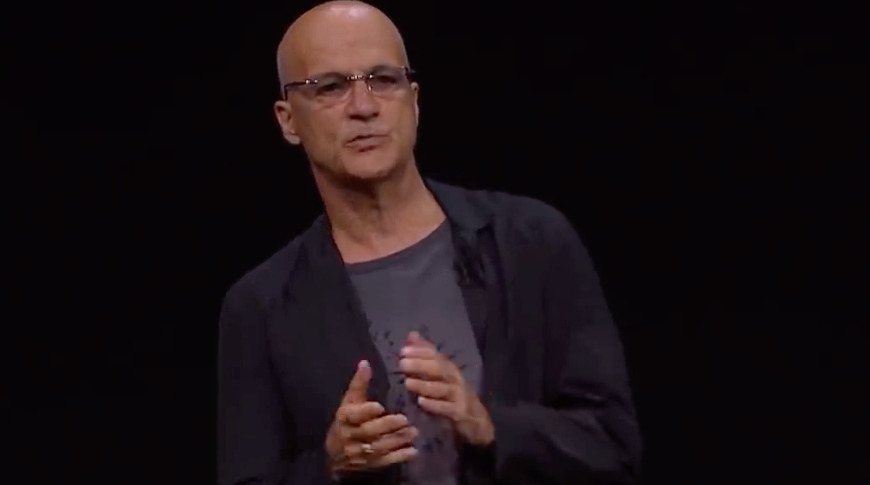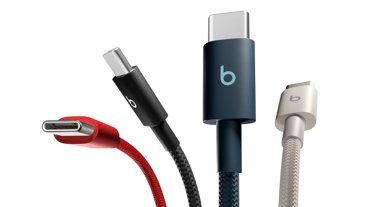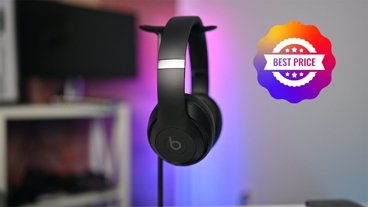Former Apple Music executive Jimmy Iovine says streaming services are all facing the same problems about differentiation, but notes it's a great time to be an artist.
Around 14 months after leaving Apple, record producer and Apple Music co-creator Jimmy Iovine talked with The New York Times about the state of streaming music services. He says each faces the same difficulties and describes what he learned from Steve Jobs, Apple and Napster.
"It's all a response to Napster. I saw how powerful that technology was, and I realized we had to switch gears. The record companies were not going to exist without tech," he told NYT. "Why I got into the music business originally was to be associated with things that were cool. And I realized that the record business at that moment, the way it was responding to Napster, was not cool."
Iovine says that 20 years ago, the record industry was "putting up a moat" and suing people to protect its interests.
"So I said, 'Oh, I'm at the wrong party.' And I met a bunch of people in tech. I met Steve Jobs and Eddy Cue from Apple. And I said, 'Oh, this is where the party is. We need to incorporate this thinking into [my record company] Interscope.'"
Iovine also wanted to work on how his music was being listened to, and says that he learned a lot from how Dr Dre was concerned with "cheap, inefficient equipment." When he decided to form Beats music, he then learned from Apple just how complex hardware is.
"Steve Jobs used to sit with me at this Greek restaurant and draw out what I needed to do to make hardware," explains Iovine. "He'd say, 'Here's distribution, here's manufacturing,' and he'd be drawing on this paper with a Sharpie. And I'd go, 'Oh, [expletive].'"
Iovine says that his going from being a record producer to co-founding Beats, and then joining Apple, was not a case of jumping ship from music to technology. But also that while he sees technology and music as part of the same thing, others do not.
"The two sides don't speak the same language," he says. "Content doesn't know what technology is building. And engineers are just going by the way they see a problem. The streaming business has a problem on the horizon, and so does the music business. That doesn't mean they can't figure it out."
The problem for streaming, he says, is in the profit margins and how music services cannot really differentiate themselves.
"It doesn't scale," says Iovine. "At Netflix, the more subscribers you have, the less your costs are. In streaming music, the costs follow you. And the streaming music services are utilities — they're all the same. Look at what's working in video. Disney has nothing but original stuff. Netflix has tons of original stuff. But the music streaming services are all the same, and that's a problem."
He also sees a problem in how record companies no longer have a direct relationship with music consumers. But equally, this can be tremendous for musicians and performers.
"The artists now have something they've never had before, which is a massive, direct communication with their audience — from their house, their bed, their car, whatever," he says. "And because of that, everybody wants them. Spotify wants them, Apple Music wants them, Coke wants them, Pepsi wants them."
"So hail to the artists, because in the end they're winning," he continues. "It isn't their problem to figure out how the streaming company and the record company are going to make more money. It's the streaming company and the record company's problem to figure out how to become more valuable to that artist."
 William Gallagher
William Gallagher







-m.jpg)






 Marko Zivkovic
Marko Zivkovic
 Christine McKee
Christine McKee
 Andrew Orr
Andrew Orr
 Andrew O'Hara
Andrew O'Hara


 Mike Wuerthele
Mike Wuerthele
 Bon Adamson
Bon Adamson




-m.jpg)



35 Comments
And if that means there are fewer streaming companies in the world, so be it.
From the musician's point of view, many things are wrong with the "streaming model". Here are some :
• the money that goes to the composers, authors and players is ridiculously low
• small labels and producers make little money, which endangers their survival and their ability to produce new recordings.
• the system especially affects less famous artists, in various less "popular" genres. The diversity of artists is in danger.
• the idea that these platforms offer everything is an illusion. Many albums are missing, a.o. many LPs, several labels...
• the musicians pages are very poor : only the labels can add albums. If they don't do their job, the artist cannot do anything about it. He has no control over the albums present on his page, he cannot complete it with missing albums, which results in very incomplete discographies.
• the information that comes with the albums is mostly non-existing, to the point that it is an insult to the participants : who is the composer, the arranger, the author, who are the performers of each track, who plays this nice solo, when and where was it recorded ? No respect...
I just hope that we are in a transitory phase which will evolve into a more satisfactory model, but I'm having my doubts.
Am I the only one that read his quotes in a Joe Pesci voice?
Let me see if I understand this:
The streaming companies, in order to make more (any?) money, want to sidestep the problem of paying licensing to the record companies for all the content they own, right...?
They want their own content ownership, which they think will come from amongst all the unsigned independent artists, so they can have “original” content on their streaming services...?
In effect, the streaming companies want to become “recording” companies, and basically repeat the whole cycle of the recording industry having a say as to what artists make and how it’s marketed...?
Is that what Iovine is saying?
I don’t know where he gets off saying that it’s a great time to be a musician. It’s a great time to be a person that wants to make music (because the tools are plentiful and even free), but this is the opposite of a good time to expect to earn an income off of being a musician.
There’s just no money in it. Even live performers struggle to make an income, and they put out way more work just for the little they make (travel, lodging, marketing, practice, maintaining a live band, maintenance of equipment and vehicles, etc).
There are countless artists who make great stuff, but they have zero exposure to an audience that wants their work. This is despite the claim of full and direct access to the world.
Iovine sounds like yet another lucky entrepreneur who thinks the examples of success he’s been surrounded by are proof of how it can work for everyone and anyone (survivorship bias).
The music software and hardware business really lives off of the money coming from hobbyists, not paid musicians or studios. The stats collected by developers have indicated as such. The number of hobbyists far surpasses the number of people making a living off of making music (and the corporations make the bulk of the money possible, all on licensing of content).
There’s no access point for the average artist. No path to having an income because there’s more than enough content available and the average artist doesn’t have the marketing might of a corporation (which they waste on 100% owned manufactured content, instead of finding interesting artists out in the world).
Half of my own music library is music that was OFFERED for free online by the musicians that made it, and mostly because they saw no way to make money with it. They wanted someone to at least hear it, so they gave it away.
I struggle constantly with getting myself to work on my music simply because of the reality that it will never provide me with any financial income. There’s no audience. The music business (and our dying economy & culture) have seen to that. People don’t even really value music much at all.
Music is not a rare commodity. With all the commercially manufactured music constantly being pushed out on the radio, malls, restaurants, TV, and every other place with speakers, music is not a compelling item to seek out. Music has become homogenous, and the culture does not value uniqueness. They’re taught not to, by popular culture manipulators (ie marketing).
Blah blah blah, who cares. I’m just one of thousands of artists who will permanently be stuck without an audience for, or an income from their art, struggling to afford just barely subsisting in my life, let alone being able to afford BEING a musician.
It is NOT a good time to be an artist.
Last comment: Visual artists are in the same spot.
What makes the music business so challenging is that a significant share of consumers only want legacy music recorded when they were adolescents or young adults. That music is available from many outlets and in several formats, which prevents any supplier from having exclusive content that it can charge premium prices for. The only way to earn meaningful profits is to cater to a modest share of the total market — today’s young adults —knowing that in ten years most of them will no longer have any interest in newly recorded music. Eventually, most everyone gravitates toward the music of their youth.